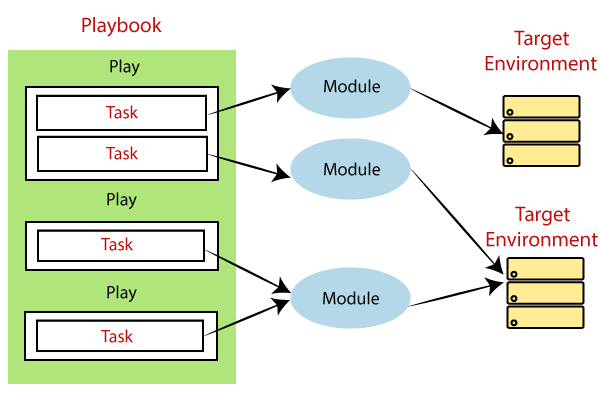Ansible PlaybooksPlaybooks are the files where the Ansible code is written. Playbooks are written in YAML format. YAML means "Yet Another Markup Language," so there is not much syntax needed. Playbooks are one of the core features of Ansible and tell Ansible what to execute, and it is used in complex scenarios. They offer increased flexibility. Playbooks contain the steps which the user wants to execute on a particular machine. And playbooks are run sequentially. Playbooks are the building blocks for all the use cases of Ansible. Ansible playbooks tend to be more configuration language than a programming language. Through a playbook, you can designate specific roles to some of the hosts and other roles to other hosts. By doing this, you can orchestrate multiple servers in very different scenarios, all in one playbook. Playbook StructureEach playbook is a collection of one or more plays. Playbooks are structured by using Plays. There can be more than one play inside a playbook. 
The function of the play is to map a set of instructions which is defined against a particular host. There are different YAML editors, but prefer to use a simple editor such as notepad++. First, open the notepad++ and copy-paste the below YAML and change the language to YAML (Language → YAML). A YAML starts with --- (3 hyphens) always. Create a PlaybookLet's start by writing an example YAML file. First, we must define a task. These are the interface to ansible modules for roles and playbooks. One playbook with one play, containing multiple tasks looks like the below example. Above is a basic syntax of a playbook. Save it in a file as test.yml. A YAML syntax needs to follow the correct indentation. YAML TagsHere are some YAML tags are given below, such as:
Next TopicAnsible Tower
|
 For Videos Join Our Youtube Channel: Join Now
For Videos Join Our Youtube Channel: Join Now
Feedback
- Send your Feedback to [email protected]
Help Others, Please Share










